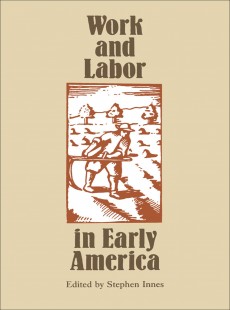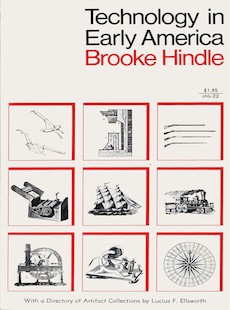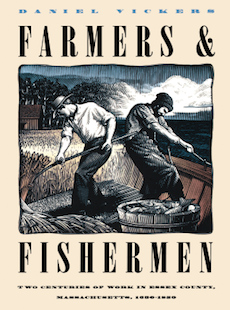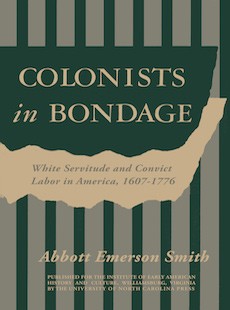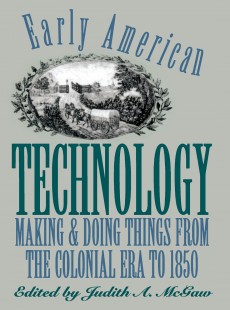
Early American Technology
Making and Doing Things From the Colonial Era to 1850
Judith A. McGaw
 Publisher: Omohundro Institute
Publisher: Omohundro Institute
Imprint: OIEAHC
Published: 11/1994
Reprint: 1994
Pages: 494
Subject: History, Technology and Engineering
Paperback ISBN: 9780807844847
eBook ISBN: 9780807839980
DESCRIPTION
This collection of original essays documents technology's centrality to the history of early America. Unlike much previous scholarship, this volume emphasizes the quotidian rather than the exceptional: the farm household seeking to preserve food or acquire tools, the surveyor balancing economic and technical considerations while laying out a turnpike, the woman of child-bearing age employing herbal contraceptives, and the neighbors of a polluted urban stream debating issues of property, odor, and health. These cases and others drawn from brewing, mining, farming, and woodworking enable the authors to address recent historiographic concerns, including the environmental aspects of technological change and the gendered nature of technical knowledge. Brooke Hindle's classic 1966 essay on early American technology is also reprinted, and his view of the field is reassessed. A bibliographical essay and summary of Hindle's bibliographic findings conclude the volume.
Contributors:
Judith A. McGaw
Robert C. Post
Susan E. Klepp
Michal McMahon
Patrick W. O'Bannon
Sarah F. McMahon
Donald C. Jackson
Robert B. Gordon
Carolyn C. Cooper
Nina E. Lerman
ABOUT THE AUTHOR
Judith A. McGaw is associate professor of the history of technology at the University of Pennsylvania. She is author of Most Wonderful Machine: Mechanization and Social Change in Berkshire Paper Making, 1801-1885.
AWARDS
REVIEWS
"[An] excellent collection of essays in early American technological history."
--Choice
"The strength of Early American Technology is the way it demonstrates the real advantages gained by linking historical studies of technology to the broader field of social history, and by utilizing probate records, patent interference cases, journals, daybooks, and other social information for understanding the place of technology in early American life."
--Reviews in American History
"Makes clear the intricate and intimate connection between technology and material culture, mainly in the Middle Atlantic region during the century and a half before 1850. It also addresses a number of important but relatively unexplored questions in the history of early American technology, including fundamental ones concerning the complex and varied nature of that technology and how historians should approach it. . . . A well-done and provocative book."
--Technology and Culture
"Early American Technology is an excellent book, and anyone interested in early American technology and society will find it enjoyable and instructive. The essays in the book are thoughtful, interesting, and provocative and push not only the boundaries of technology studies but multidisciplinary studies in general in new and exciting directions."
--Winterthur Portfolio
"This is a badly needed book. . . . Historians of technology will especially welcome these essays for their charting of the field's accomplishments and its outstanding questions. A broader range of scholars will also appreciate how the essays interweave economic, environmental, and social histories by focusing on the topics of human artifice and design."
--Joyce E. Chaplin, Vanderbilt University
"Thanks to the masterful editorial hand of his student, Judith McGaw, Brooke Hindle's original essay (reprinted herein) from his 1966 volume Technology in Early America is extended and deepened by nine new monographic contributions and an updated bibliographic essay. By probing the quotidian as well as the exceptional aspects of making and doing things in early America, these essays take us into new terrain and remind us in no uncertain terms that technology encompasses a good deal more than tools and machines. In urging us to set aside our preconceptions and recognize the richness, diversity, and complexity of technology in early America, they speak eloquently to the need for new scholarship and, indeed, a new way of thinking about a critical period of American history. . . . A fitting tribute to Brooke Hindle's scholarship and influence on the field of the history of technology."
--Merritt Roe Smith, Massachusetts Institute of Technology
RELATED TITLES


